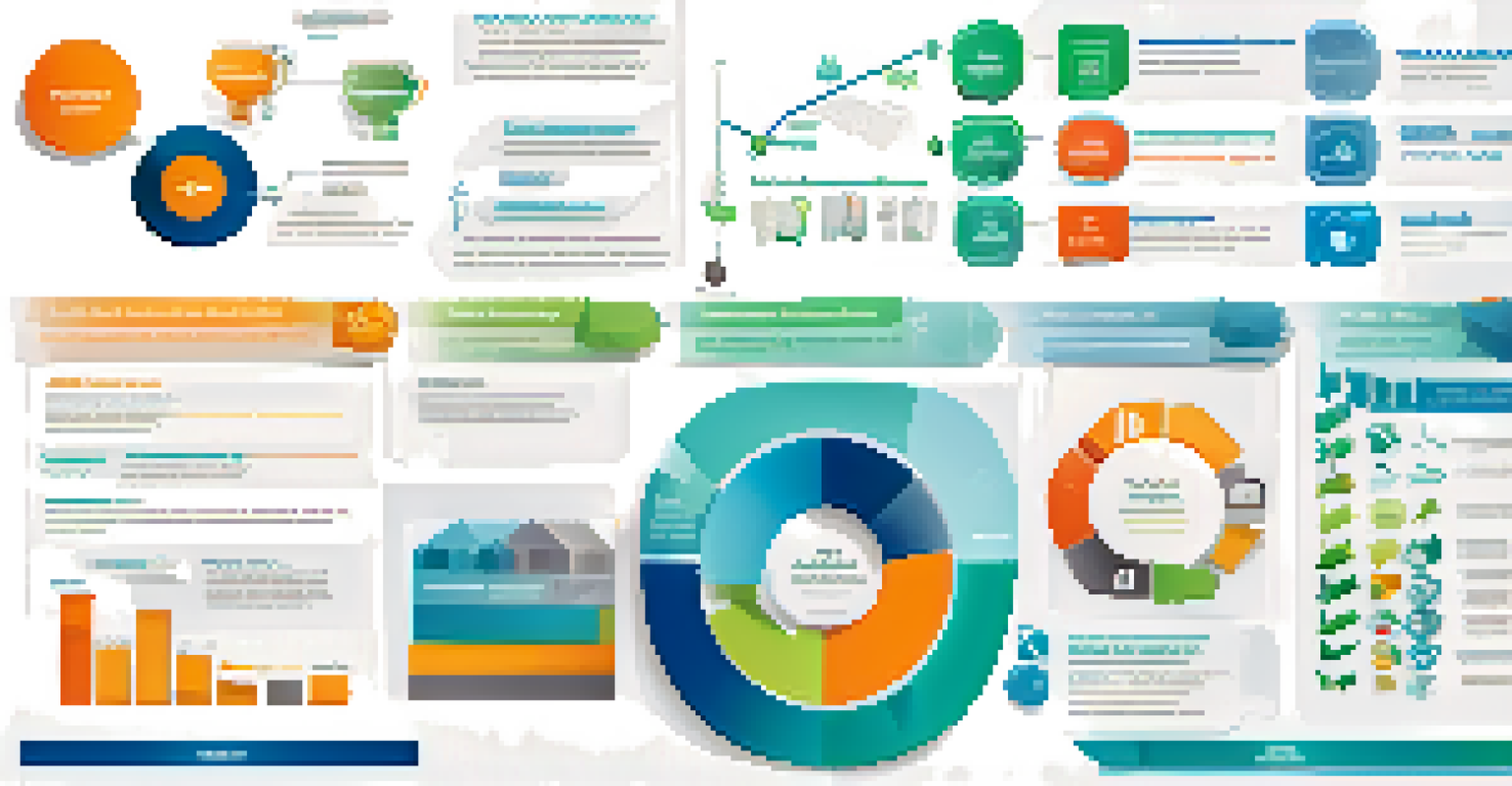The Importance of Market Research in Business Strategy

What is Market Research and Why is it Essential?
Market research is the process of gathering, analyzing, and interpreting information about a market. This includes understanding consumer needs, preferences, and behaviors, as well as evaluating competitors. Essentially, it acts as a compass for businesses, guiding them toward informed decisions.
Market research is the key to understanding your customer’s needs and preferences, which is essential for any successful business.
In today's fast-paced business environment, relying on gut feelings or assumptions can be risky. Market research provides data-backed insights that help reduce uncertainty and enhance strategic planning. It’s like having a map when exploring uncharted territory—without it, you might wander aimlessly.
By understanding trends and consumer behavior through market research, businesses can better position themselves in the marketplace. This foundational knowledge allows companies to identify opportunities for growth and innovation, ensuring they stay ahead of the competition.
Identifying Target Audiences Through Research
One of the primary functions of market research is identifying and understanding target audiences. Knowing who your customers are—their demographics, preferences, and pain points—allows businesses to tailor their products and marketing strategies. It’s like tuning into your favorite radio station; you want to hear the music that resonates with you.

For instance, if a company discovers that their ideal customer is a tech-savvy millennial, they can adjust their messaging and platforms accordingly. This targeted approach not only increases engagement but also enhances customer satisfaction. After all, nobody wants to feel like they’re being sold something that doesn’t speak to them.
Market Research Guides Decisions
Market research provides data-backed insights that help businesses make informed decisions and reduce uncertainty.
Moreover, understanding your audience helps in predicting future trends and behaviors. By keeping a pulse on what your customers want, you can adapt and innovate, ensuring your business remains relevant in a constantly evolving market.
Gaining Competitive Insights Through Market Research
Market research doesn't just focus on consumers; it also involves analyzing competitors. This competitive landscape analysis helps businesses understand their rivals' strengths and weaknesses, allowing them to carve out their unique niche. Think of it as scouting the competition before a big game; knowing their plays can give you an edge.
Without data, you're just another person with an opinion.
By examining competitors’ strategies, pricing, and customer feedback, businesses can identify gaps in the market. This information is invaluable for developing products or services that stand out. For example, if competitors are offering similar products but lack excellent customer service, a business can capitalize on that by prioritizing customer experience.
Additionally, competitive insights can inform pricing strategies, promotional tactics, and distribution channels. In short, market research equips businesses with the knowledge to not just compete, but to thrive in their respective industries.
Enhancing Product Development with Market Research
Product development is another area where market research plays a crucial role. By gathering feedback from potential customers during the development phase, businesses can ensure that their products meet the market's needs. It’s like cooking a new recipe; tasting along the way helps you get it just right.
For example, conducting focus groups or surveys can reveal what features consumers value the most. This insight enables businesses to prioritize functionalities that resonate with their audience, ultimately leading to higher satisfaction and sales. Ignoring this step can result in products that miss the mark, leading to wasted resources and lost opportunities.
Understanding Your Audience Matters
Identifying target audiences through research allows businesses to tailor products and marketing strategies to better resonate with customers.
Moreover, market research can help identify when to phase out underperforming products. By analyzing sales data and customer feedback, businesses can make informed decisions about product lifecycles, ensuring they invest their efforts in the most promising areas.
Informing Marketing Strategies Through Research
Effective marketing strategies are built on a foundation of thorough market research. Understanding what drives your target audience can significantly enhance how you communicate with them. It’s akin to speaking the same language; when your message aligns with their values and interests, it resonates more deeply.
For instance, insights into customer preferences can guide content creation, social media engagement, and advertising campaigns. If research shows that your audience prefers video content, investing in high-quality video marketing could lead to better engagement and conversion rates.
Additionally, market research helps businesses determine the most effective channels for reaching their audience. Whether it’s social media, email marketing, or traditional advertising, knowing where to focus your efforts can maximize your marketing ROI.
Mitigating Risks with Comprehensive Market Research
Every business decision carries some level of risk, but market research can significantly mitigate these uncertainties. By understanding market conditions, consumer behavior, and potential challenges, businesses can make informed decisions that minimize risk. It’s like wearing a seatbelt; it won’t prevent an accident, but it certainly helps you stay safe.
For example, before launching a new product, conducting thorough research can reveal potential obstacles, such as market saturation or changing consumer preferences. This foresight allows businesses to adapt their strategies proactively, increasing the likelihood of success.
Ongoing Research Builds Loyalty
Continuous market research fosters strong customer relationships by demonstrating that businesses value feedback and adapt to evolving needs.
Furthermore, market research can help businesses prepare for economic fluctuations. By staying attuned to market trends, companies can pivot their strategies to navigate downturns or capitalize on emerging opportunities, ensuring long-term sustainability.
Building Customer Relationships Through Ongoing Research
Market research isn’t just a one-time task; it’s an ongoing process that fosters stronger customer relationships. Regularly gathering feedback and insights helps businesses stay connected with their audience. Think of it as maintaining a friendship; regular communication keeps the bond strong and helps you understand each other better.
By engaging customers through surveys, interviews, or feedback forms, businesses can demonstrate that they value their opinions. This not only enhances customer loyalty but also encourages word-of-mouth referrals, as satisfied customers are more likely to recommend a brand they feel connected to.

Moreover, continuous research allows businesses to adapt to changing consumer needs over time. As trends evolve, so too should your understanding of your audience. This agility positions businesses to meet customer expectations consistently, ultimately driving growth.
Conclusion: The Strategic Value of Market Research
In conclusion, market research is an indispensable element of any successful business strategy. It provides the data and insights necessary for informed decision-making, helping businesses navigate the complexities of the market landscape. Just as a well-researched essay outshines a haphazard one, so too does a data-driven strategy lead to better outcomes.
From identifying target audiences to enhancing product development and marketing efforts, the benefits of market research are manifold. Businesses that prioritize research are more likely to innovate, compete effectively, and build lasting customer relationships.
Ultimately, investing time and resources into market research is not just a good practice; it’s a strategic necessity. By making informed decisions rooted in solid research, businesses can position themselves for long-term success and growth.